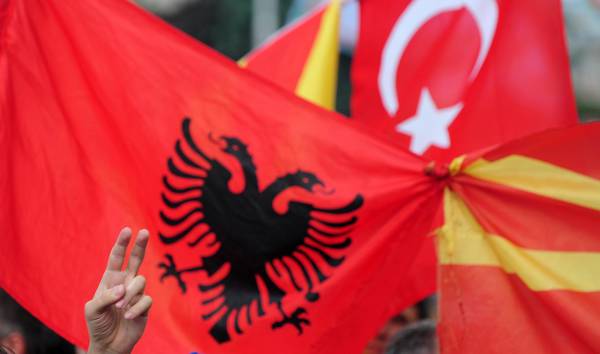Albania, despite headlong rush someone's still seeking truth
Tirana, Institute for crimes of communism sheds light on victims
30 June, 09:18''24 years after the end of the communist regime, the truth about what happened during those terrible decades has never come to light'', said the Institute's director Agron Tufa, speaking with ANSA New Europe. ''Those who collaborated and worked with the old nomenclature are still there; some of them play key roles in politics, public administration, cultural and scientific institutions''. Even today, he said, ''textbooks and teaching programmes are steeped in that culture. Streets and squares still bear the names of the persecutors at that time''.
''No justice has been achieved so far'', he added. The Institute, the last to be founded in Eastern Europe through state funding (in 2011), '' is the first institution aiming to shed light on those 45 years of terror''. It is located in the building that was once the residence of the Lieutenant General of the King of Italy, Francesco Jacomoni San Savino. Along with Tufa, 14 people work in this institute. Among the projects and publications this entity is carrying on, there is a big publishing plan: ''The Encyclopedia of the dictatorship's victims''. In all, 15 volumes - of which 3 have already been published - including all the victims, ''all those who were persecuted and imprisoned by Albanian communism''. A huge research programme, including the study of documents from the State Archive - even the Secret one - and the collection of survivors' stories. ''We are going to interview them individually, one-by-one'', explains Tufa, who is a Professor of Theory of Translation at the Graduate School of Journalism in Tirana. Their stories, he admitted ''are often dreadful''. It's very hard to bring to light the stories of the people who disappeared in the first decade of the dictatorship ''some of them were shot dead, and their stories are totally unknown, there are many missing persons, most of whom without leaving any trace or record, , even in confidential documents''.
A separate chapter concerns the Albanian priests and imams - Catholic and Muslim - who were persecuted, tortured, humiliated or eliminated between 1945 and 1967. Between 1967 and 1975, many churches and mosques were completely destroyed or turned into something else. Until 1976, when atheism became the only official religion according to the country's Constitution. Last year, Pope Francis met in Tirana with some Albanian priests who survived the violence of a regime that wanted to exterminate those who believed in God. The Albanian state has never asked for forgiveness even for those Catholic martyrs, so far.(ANSA).














